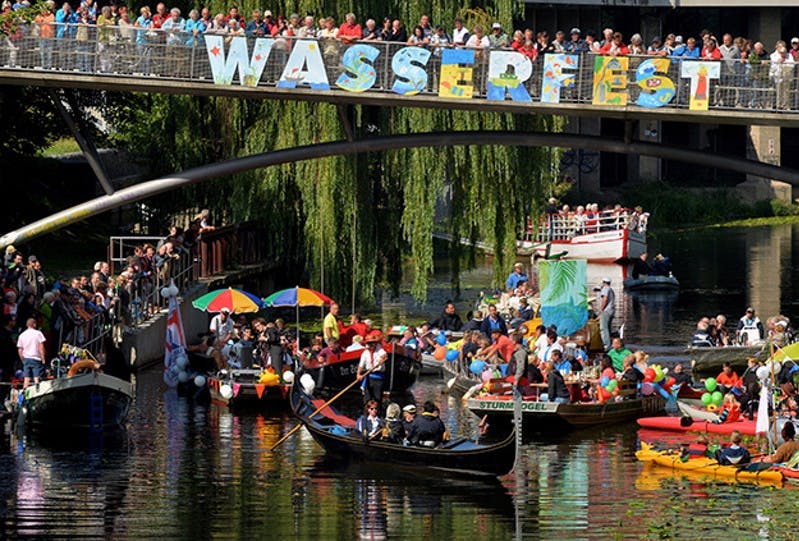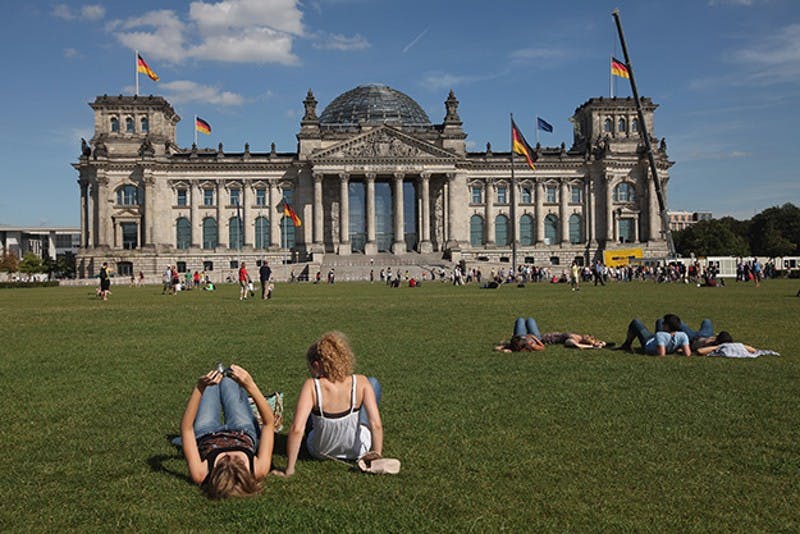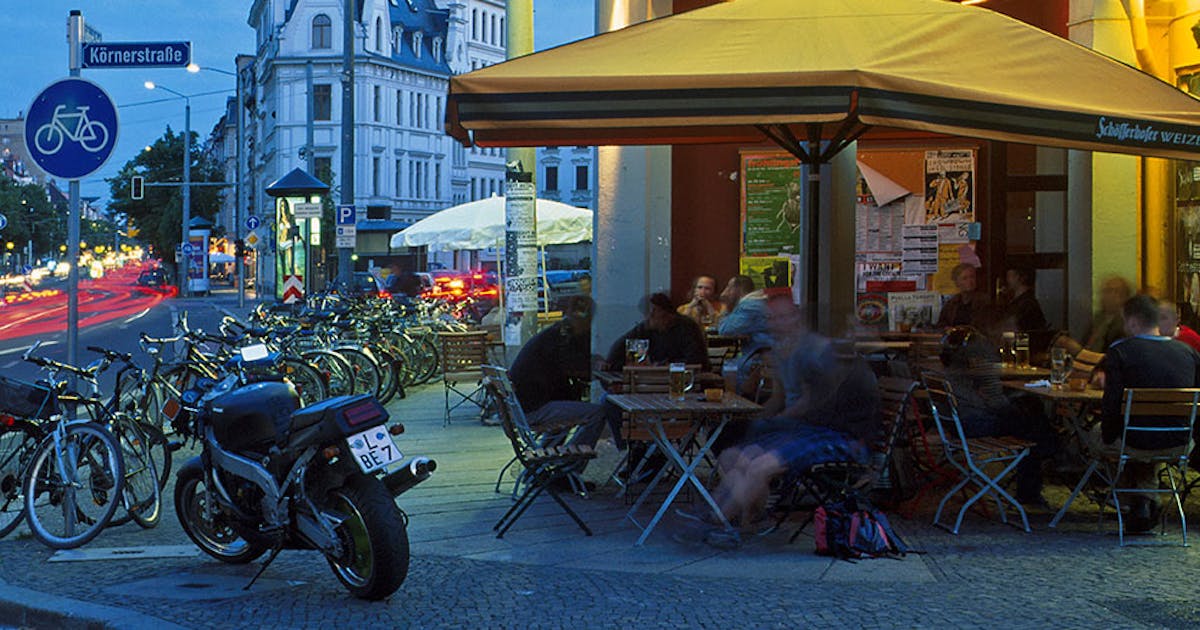
The decorated boat fleet in the traditional parade for the 14th water festival on the Karl-Heine-Canal in Leipzig, Germany.
Hendrik Schmidt/picture-alliance/dpa/AP Images
Lately, “new Berlin” has become shorthand for an under-visited European city that is cheap, fun, and up-and-coming. Ever since creeping gentrification and a massive rise in tourism have thrown into question the German capital’s status of the world’s “coolest” city, people have been racing to determine its successor. Candidates besides Leipzig include Krakow (Poland), Vilnius (Lithuania), Belgrade (Serbia), Tallinn (Estonia), and Warsaw (Poland). They share, to varying degrees, many of the elements that made Berlin famous in the 1990s: affordability, empty buildings that can be repurposed and a sizeable arts scene. But unlike Berlin, they won’t have the opportunity to develop their cool reputation slowly—and are just as likely to be ruined by the hype as they are enriched by it.
It goes without saying that Berlin will, of course, always be the only Berlin. Its combination of livability, anti-authoritarianism, and sophistication stems from its winding, often traumatic path through European history. The city has been cool, to varying degrees, for a very long time. During the Weimar era, it became famous for its hedonistic parties and sexual openness, and during the 1970s, David Bowie cemented the city’s avant-garde image. After the fall of the Wall, its techno scene—which took root in abandoned factories and department stores—helped turn it into Europe’s nightlife capital.

Visitors relax on a sunny day on grass in front of the Reichstag in Berlin, Germany.
Sean Gallup/Getty Images
But in the past decade, the city’s hipness has become less organic and more aggressively manufactured. Klaus Wowereit, the city’s mayor since 2001, coined a slogan, “arm aber sexy” (“poor but sexy”), that became the city’s calling card, and funded a number of ad campaigns to market the city, including its outlying neighborhoods, to globetrotting party kids. In 2004, he told an interviewer that he wanted to make tourism a “priority at the top-level,” and in the years since, the number of tourists visiting Berlin has risen dramatically from 13 million overnight stays in 2004 to a record 27 million in 2013. In the process, the city has become so overexposed that local officials have begun mulling a “code of conduct” for visitors and the German press engaged in a months-long debate this spring about whether or not the city is actually “over.”

